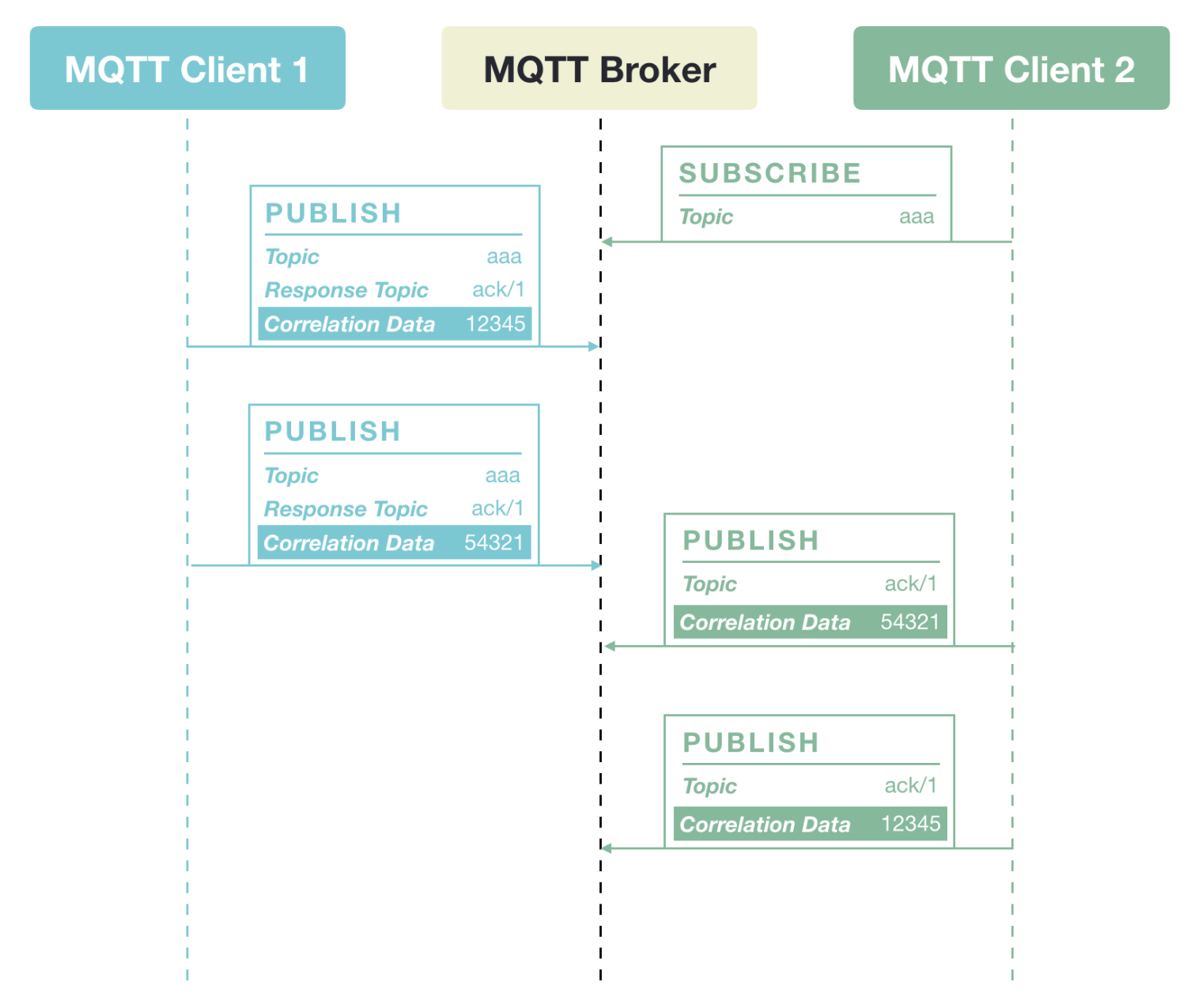MQTT v5 Request-Response (MQRR) Pattern provides similar behavior like HTTP. Different from the HTTP Request-Response model, MQTT request-response is asynchronous, which brings a problem, that is how to associate the response message with the request message. The following diagram describes the request-response interaction process:
See the MQTT Request Response article for detailed description.
go get github.com/koho/mqrrLet's create a simple API server that listens for the hello topic.
package main
import (
"github.com/koho/mqrr"
)
func main() {
r := mqrr.New()
r.Route("hello", func(c *mqrr.Context) {
c.String("Hello %s", c.GetRawString())
})
r.Run("mqtt://broker-cn.emqx.io:1883")
}In the client side, we publish a message with our name to the hello topic, then wait for a response.
go get github.com/koho/mqrr/clientpackage main
import (
"context"
"fmt"
"github.com/eclipse/paho.golang/paho"
"github.com/koho/mqrr/client"
)
func main() {
resp, err := client.Request(context.Background(), "mqtt://broker-cn.emqx.io:1883", &paho.Publish{
Topic: "hello",
Payload: []byte("John"),
})
if err != nil {
panic(err)
}
fmt.Println(string(resp.Payload)) // Should output "Hello John"
}func main() {
r := mqrr.New()
r.Route("user/:name", func(c *mqrr.Context) {
name := c.Param("name")
c.String("Hello %s", name)
})
r.Route("groups/*last", func(c *mqrr.Context) {
c.String(c.Param("last"))
})
r.Run("mqtt://broker-cn.emqx.io:1883")
}func main() {
r := mqrr.New()
g1 := r.Group("G1")
g1.Route(":dev/new", func(c *mqrr.Context) {
c.String("new")
})
g2 := g1.Group("G2")
g2.Route(":temp", func(c *mqrr.Context) {
c.String("temp")
})
r.Run("mqtt://broker-cn.emqx.io:1883")
}type User struct {
Name string `topic:"name"`
Age int `json:"age" validate:"gte=18"`
}
func main() {
r := mqrr.New()
r.Route("user/:name", func(c *mqrr.Context) {
user := User{}
if err := c.BindTopic(&user); err != nil {
c.String(err.Error())
return
}
if err := c.ShouldBindJSON(&user); err != nil {
c.String(err.Error())
return
}
c.JSON(user)
})
r.Run("mqtt://broker-cn.emqx.io:1883")
}func main() {
c, err := client.New("mqtt://broker-cn.emqx.io:1883")
if err != nil {
panic(err)
}
defer c.Close(context.Background())
wg := sync.WaitGroup{}
for _, name := range []string{"John", "Mary", "Ben"} {
wg.Add(1)
go func(n string) {
defer wg.Done()
resp, err := c.Request(context.Background(), &paho.Publish{
Topic: "hello",
Payload: []byte(n),
})
if err != nil {
panic(err)
}
fmt.Println(string(resp.Payload))
}(name)
}
wg.Wait()
}